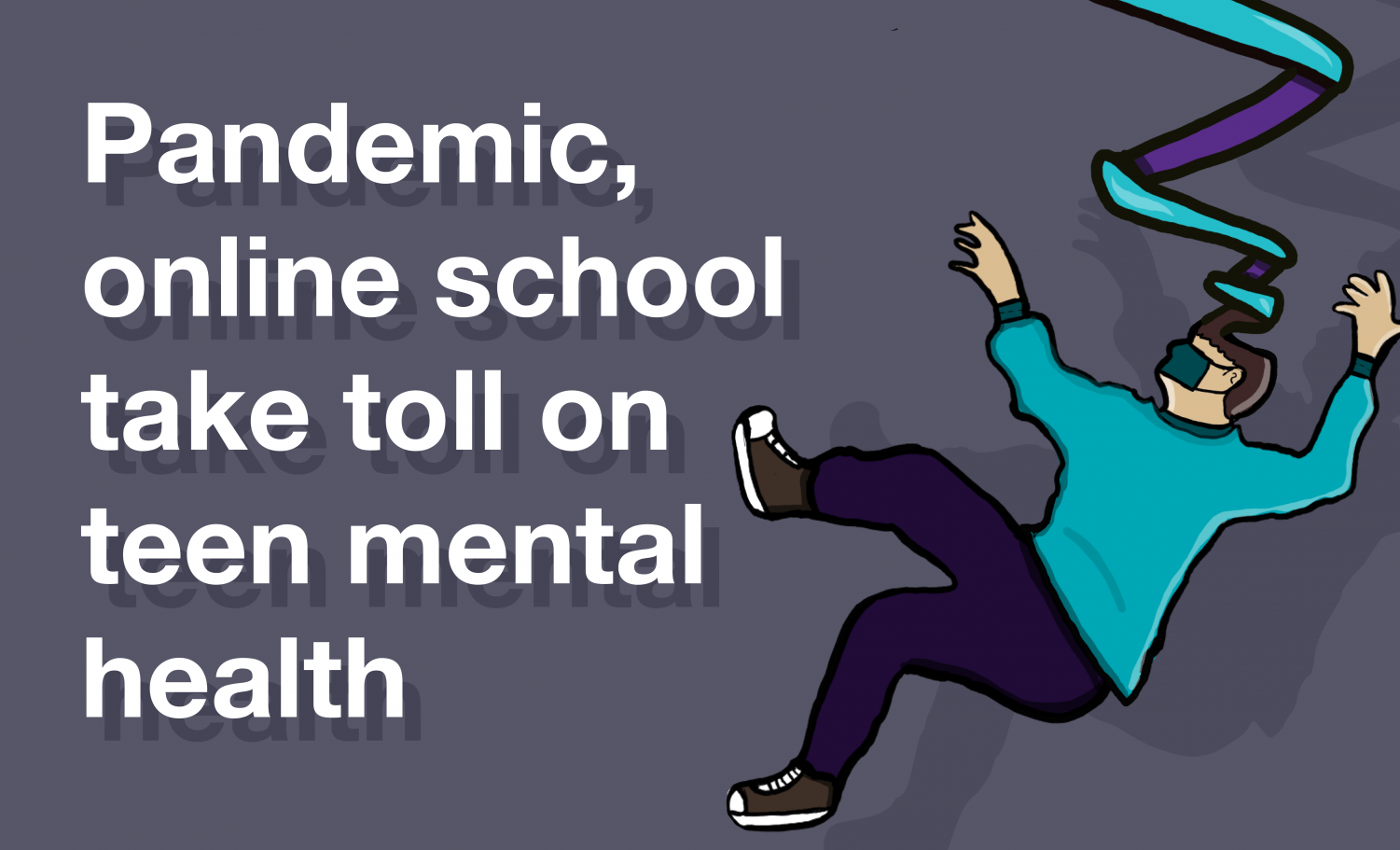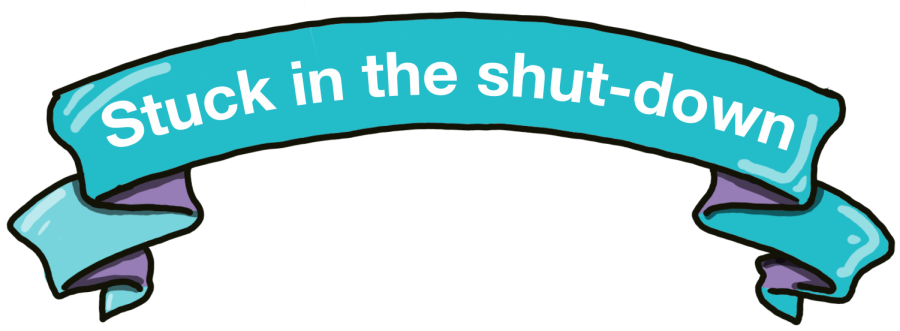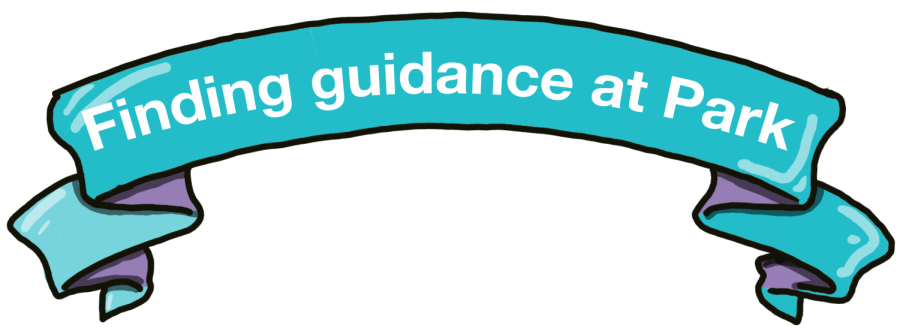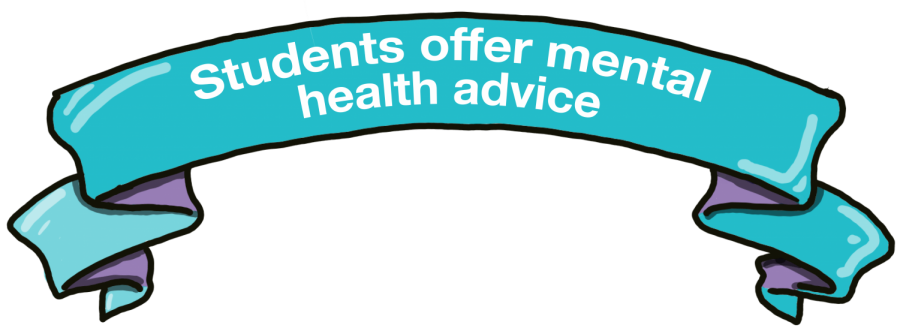Underneath the mask: pandemic, distance learning take toll on teen mental health
Lack of social interaction leads teens to struggle
October 4, 2020
According to Dr. Kristin Ballard, a licensed Psychologist and founder of Ballard Clinic, after the COVID-19 lockdown began in March, mental health has been negatively affected, especially in teens. As many schools begin the year online with various canceled events, teen emotions are at an all-time low, Ballard said.
“Teens had to be isolated and stay at home, quarantining with their families. It was really tough and really why that is, is that developmentally at the point a teenager is at in their life, their whole push is to be with their peers. And that’s really normal and to be out exploring the world seeking new fun adventures and experiences,” Ballard said.
According to Ballard, as states lifted some restrictions over the summer, many teens were uplifted by being able to leave their homes more. However, according to Ballard, the dangers of COVID-19 are still prevalent, and the anxiety around possibly bringing the virus home adds to the list of difficult emotions many teens face.
“Summer came and there was some loosening up with some of those restrictions and I think that helped bring moods up again. But what I’ve also noticed is just anxiety around people who might have a family member who has either some medical conditions or if they might be in a higher risk category for COVID,” Ballard said. “There is some anxiety that the teens are experiencing when they do go out, and the thought of possibly bringing this back to their families.”
Senior Grace Loveland, who struggled with her mental health before the pandemic, said the uncertainty that surrounds it caused her to reach a low point. According to Loveland, creating a routine for herself helped to get her out of a bad place.
“With the pandemic, not being able to see my friends (was hard),” Loveland said. “I thrive on structure, and so losing that structure was really hard for me. My mental health definitely took a turn at one point, but it got better with finding a routine”
Science teacher Al Wachutka said it is important to recognize the impact of the pandemic for teens in comparison to adults.
“When you figure it’s one year out of someone who is sixteen years old that’s a higher percentage of their life that they’ve been living in pandemic and it’s their very formative years, very social years,” Wachukta said. “Years when students are usually working towards independence from their families and parents, so it becomes difficult for the students.”
With the lack of social interactions already present from the pandemic, according to Ballard, school struggles are amplified from being online. Having to be on a screen all day can be hard on students physically, and mentally, Ballard said.
“A lot of teens would say that part of the joy they got from going to school was seeing their friends, that’s what made school tolerable and what got them through the day,” Ballard said. “A lot of people have had enough, they have screen fatigue. It’s just kind of draining sometimes just sitting and staring at the screen for the whole day.”
Ballard said learning disabilities, like ADHD, can also be negatively affected by online school. According to Ballard, teachers have a harder time accommodating for students with different learning styles as well as disabilities online.
“For those people who have ADHD, this is particularly challenging because sitting at home, sitting in the same chair, sitting in the same room, it’s really hard to stay focused all day. So then, that brings another challenge,” Ballard said. “It’s not everybody’s learning style to do (distance learning). A lot of people prefer in-person, so it’s harder to concentrate for the duration of the classes.”
With distance learning starting again, Ballard feels it is important for students to have a safe place to open up about emotions.
“Just having an outlet where these students could go to talk about worries or just even talk about any drops in mood, might be good, just talking about it and normalizing the fact that ‘yeah, this school year is really different,’” Ballard said. “People have feelings about it or have feelings about missing their sports or missing their activities. It’s helpful having that open door to talk about all these mixed feelings.”
Staff at Park have adjusted their resources to support students and implement methods similar to the ones Ballard mentioned. Senior guidance counselor Laura King said a large part of forming a successful distance learning environment is creating connections between students and teachers.
“I really want to just state that we’re here to help. We are first and foremost student advocates,” King said. “A student reaching out to us is not seen as a burden, or an inconvenience, we welcome and appreciate it, frankly we’re honored that they are trusting us with some of their challenges.”
Sophomore guidance counselor Kelsey Milne, said throughout the teacher workshop week before the school year began, staff at Park dedicated time to prepare for the new issues and concerns that have been arising from the pandemic.
“We encourage students to reach out to us, however they prefer when they’re having issues, and then we are happy to help and happy to help them find resources,” Milne said.
Park Connections, a 30-minute daily class, gives teachers the opportunity to do check-ins with students on a multitude of areas and talk about social issues or students’ emotional well being according to King.
“Building the community and having support was a huge goal of the program, and I think it’s been accomplished, and I’m positive that it will continue this year. While the expectations are still high, there is also that compassion of recognizing everybody’s learning environment is different,” King said.
Through these unprecedented times, Milne said Park staff are here to offer their help, support and to provide relief to students who are struggling, as it is important to her that students reach out if needed.
“We are continuing to come up with resources that would help students get referred to us as counselors, as well we’ve got social workers, and the Learning Lab is going to be open for help. There’s going to be a lot of different ways people are going to be helping to support students when they need it,” Milne said.
Taking into consideration all the changes because of the pandemic, Milne is hopeful to create a positive working atmosphere throughout the school year.
“I have been extraordinarily impressed with our staff at the high school, and how hard everyone is working, and how passionate everyone is about student success and making it a positive school year,” Milne said. “We’re really lucky at St. Louis Park to have such a strong community and such strong teachers and strong staff members.”
Some students, like Loveland, have been finding their own methods outside of school to help themselves throughout the pandemic, and wish there were more conversations about mental health at school.
“I never really talked with anyone from the school, just because I had my own support system. I feel like there definitely are people at school that students can talk to, if needed for mental health,” Loveland said. ”There’s not enough people to advocate for mental health in our school, there are programs like the Change to Chill Program, but I feel like even that got abused a little bit.”
King said Park is offering many resources that students can use to get the support they need.
“We offer individual counseling sessions, our social workers are available to work with students and some of our social workers run support groups along various topics,” King said.
Loveland has also found ways to stay motivated and productive, and said there are other resources that can be helpful to Park students as she also struggles during this unfortunate time. She recommends finding ways to study outside of the house, and with friends if done safely.
“I found ways where I can do school with my friends. Once every couple weeks there’s a learning space kind of thing that Penny’s has in Linden Hills that you can use.”
According to junior Semona Robel, it’s vital to reach out to someone you love and trust when you find yourself struggling, not only for your sake, but theirs as well.
“The most important thing is making sure that you’re reaching out to the people that you love, whether that be just sending a quick text that says ‘I’m here for you’, or an hour-long FaceTime or a socially distanced hangout session.”
There are other resources students can seek outside of the school like online therapy sessions, Loveland said.
“I see professional therapists and psychiatrists, and they use telehealth, which is what a lot of therapists and doctors are using right now to communicate with their patients, which is really nice, just to keep those connections going,” Loveland said.
Robel said she encourages students to reach out to someone they feel comfortable with, she said it is important to be there for each other especially since students can’t be together as much as they would like.
“It’s really important to just show other people that you care for them, because it’s really easy to forget that when we’re not together,” Robel said.
Loveland said it is beneficial to communicate with your friends often, and listen to what they have to say.
“Your friends care about you, and they’re not gonna change how they think about you if you tell them what you’re going through, because most likely they’re going through something of their own,” Loveland said.
Art by Jaida Puentes



